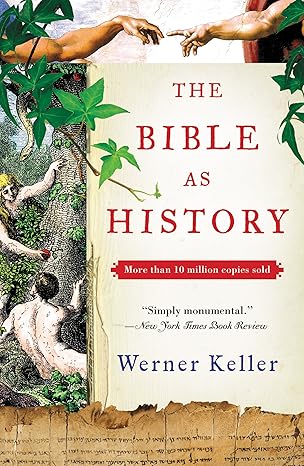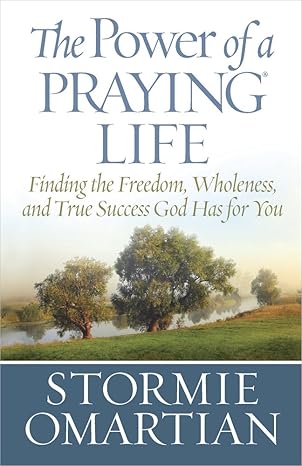
The Bible as History Book Review: Why This Christian Classic Still Matters Today
Tuesday, August 25, 2015What if I told you there's a book that can make those familiar Bible stories feel brand new again? Werner Keller's The Bible as History does exactly that—it takes you on a fascinating journey through archaeological discoveries that bring Scripture to life in ways you never imagined.
Published back in 1955, this book hit the Christian world like a breath of fresh air during a time when many scholars were questioning the Bible's historical reliability. As a fellow believer who's wrestled with those nagging "what if" questions about our faith, I found Keller's approach incredibly refreshing. He doesn't just tell us the Bible is true—he shows us the dirt, stones, and ancient artifacts that prove it.
About the Book
The Man Behind the Mission
Werner Keller wasn't your typical theologian sitting in an ivory tower. This German journalist had a reporter's nose for truth and wasn't afraid to get his hands dirty—literally. Think of him as the Christian world's answer to an investigative journalist, except instead of chasing political scandals, he was chasing down proof that our faith stands on solid ground.
What I love about Keller's approach is that he didn't start with an agenda to prove the Bible right. He simply asked the question that many of us have wondered about: "If all these biblical events really happened, shouldn't we find some trace of them in the archaeological record?" It's like looking for breadcrumbs to confirm a story—and boy, did he find some amazing breadcrumbs.
What You'll Discover Inside
Picture this: You're reading about the Israelites' exodus from Egypt, and instead of just taking it on faith, you discover actual archaeological evidence of Hebrew settlements in the wilderness. Or imagine learning that the "mythical" Hittites mentioned throughout the Old Testament were not only real but had a massive empire that archaeologists have uncovered piece by piece.
That's exactly what The Bible as History delivers. Keller takes you on a tour through time, examining everything from the patriarchs to the apostles. He's like that friend who gets genuinely excited about history and can't wait to share what he's discovered. Whether he's talking about the walls of Jericho, King David's palace, or the world Jesus walked through, Keller connects the dots between Scripture and the stones that archaeologists have dug up.
What makes this journey so compelling is how each discovery seems to echo back to us across the centuries, saying, "Yes, this really happened. Yes, these people were real. Yes, your faith has historical roots."
What I Absolutely Loved About This Book
It's Like Having Coffee with a Really Smart Friend
Here's the thing—I've slogged through plenty of dry academic books that made my eyelids heavy by page ten. The Bible as History is nothing like that. Keller writes like he's sitting across from you at your kitchen table, sharing the most incredible discoveries with genuine enthusiasm.
You know that feeling when you're explaining something exciting to a friend, and you keep saying, "But wait, there's more!"? That's Keller on every page. His journalistic background really shows—he knows how to tell a story that keeps you turning pages instead of using them as a bookmark for your nap.
It Strengthened My Faith in Ways I Didn't Expect
I'll be honest—when I first picked up this book, I was going through one of those seasons where doubt was knocking pretty loudly at my door. You know what I mean? Those moments when you wonder if maybe the skeptics have a point, if perhaps we're just believing in beautiful stories.
But Keller's presentation of archaeological evidence hit me like a splash of cold water—in the best possible way. When he describes the discovery of the Dead Sea Scrolls or explains how archaeologists confirmed the existence of the Hittite civilization (which critics had dismissed as biblical fiction), it's like watching puzzle pieces click into place. Each piece of evidence doesn't just stand alone; it builds on the others until you have this overwhelming sense that Scripture isn't just spiritually true—it's historically solid.
The Scope Is Mind-Blowing
Think of this book as a grand tour through biblical history, but instead of a rushed bus tour where you barely glimpse the sights, Keller gives you a leisurely walk through each era. He covers everything from Abraham's time all the way to the apostles, and somehow manages to make each period feel equally fascinating.
What really got me was his chapter on Jericho. I'd heard the story of those walls tumbling down since I was in Sunday school, but Keller shows you what archaeologists actually found at the site. It's one thing to believe the story; it's another to read about the physical evidence that supports it. The same goes for his exploration of Solomon's wealth and building projects—suddenly, those passages about the temple's grandeur feel less like ancient exaggeration and more like historical reporting.
It's Still Relevant After All These Years
Here's something that impressed me: even though Keller wrote this book in the 1950s, his basic approach—using archaeology to shed light on Scripture—hasn't gone out of style. It's like he laid down a foundation that others have been building on ever since. Sure, we've discovered more things since then (which I'll mention in a bit), but his fundamental insight remains golden: faith and facts don't have to be enemies.
Let's Be Real: A Few Things to Keep in Mind
Some Information Shows Its Age
Now, I need to be upfront with you—this book is almost 70 years old, and archaeology has come a long way since then. It's kind of like using a 1950s medical textbook to understand modern healthcare. The basic principles might still be sound, but you'd want to supplement it with more recent findings.
Some of Keller's specific conclusions have been refined or even challenged by newer discoveries. That doesn't make the book worthless—not by a long shot—but it does mean you might want to pair it with some more recent archaeological works to get the full picture.
Don't Expect a Devotional Experience
If you're looking for a book that will warm your heart and inspire your morning quiet time, this probably isn't it. Keller's focus is firmly on the historical evidence, not on personal spiritual application. Think of it more like a really fascinating documentary than a heartwarming sermon. Both have their place, but they serve different purposes.
That said, I found that understanding the historical foundation of my faith actually deepened my spiritual connection to Scripture. Sometimes knowing that something really happened makes it more meaningful, not less.
It Won't Appeal to Everyone
Here's the honest truth: if you're more interested in the symbolic or allegorical meanings of Scripture, this book might feel a bit beside the point to you. Keller is all about the literal, historical accuracy of biblical events. He's less concerned with what the stories might represent and more focused on whether they actually happened.
There's nothing wrong with preferring symbolic interpretations, but just know that's not Keller's lane. He's firmly in the "this really happened" camp.
Who Should Grab This Book?
This Werner Keller book is perfect if you're:
- A Christian who loves learning about biblical archaeology and historical evidence
- Someone who's ever wondered, "Did this stuff really happen?"
- A reader who enjoys books that make you think while keeping you engaged
- Curious about how faith and historical research can work together
- Studying Christian apologetics and need some solid, evidence-based material
Honestly, if you've ever found yourself in a conversation with a skeptic and wished you had some concrete evidence to share, this book will give you plenty to work with.
My Bottom Line: Still Worth Your Time
Look, I'm not going to tell you that The Bible as History is perfect or that it answers every question you might have about biblical archaeology. But what I will say is this: it's one of those books that can genuinely strengthen your faith by showing you that believing in the Bible doesn't mean checking your brain at the door.
Keller demonstrates something I think we all need to hear—that faith and facts can be friends. Archaeological discoveries don't threaten our beliefs; they often support them in remarkable ways. When someone asks you, "Is the Bible historically accurate?" you'll have real evidence to share, not just sincere conviction.
Even though it was written decades ago, the core message still rings true: archaeology tends to confirm rather than contradict the biblical narrative. That's not wishful thinking—that's what the evidence shows.
If you're looking for a book that bridges the gap between faith and historical research, or if you simply want to understand why so many believers find archaeological discoveries exciting rather than threatening, The Bible as History deserves a spot on your shelf. It's the kind of book that doesn't just inform you—it encourages you in your faith journey by showing you that our beliefs stand on solid historical ground.
Trust me, your faith will be stronger for reading it.
More Books
Comments



